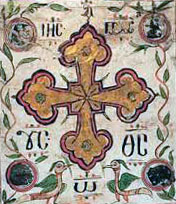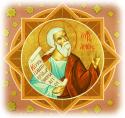 01 - 02 - 01 - 30 - Amos - Commentary on the Book of Amos
01 - 02 - 01 - 30 - Amos - Commentary on the Book of Amos
Commentary on the Book of Amos
Father Tadros Y. Malaty
AMOS AN INTRODUCTION
(1) ‘Amos’ is a Hebrew word, meaning (A bearer of burden), or (a burden); As according to the Jewish tradition, the prophet Amos was slow of speech and slow of tongue. And his name, as well, conforms with the goal of his book, which is to reveal the heavy burden of sin, un-endurable and unacceptable to God, whoever the sinner may be; He who will punish both the Jews and the Gentiles for their sins.
(2) Amos is considered the first of the ‘Writing prophets’; He wrote his prophecies in a poetic, sweet, and simple way; albeit being less eloquent than that of ‘Joel’. His book came loaded with homologies; And having lived in an agricultural atmosphere, very close to the wilderness; it was also loaded with portraits drawn from the life of the dwellers of villages, on one side, and of the wilderness on the other.
(3) From his talk (1: 1; 7: 10), it is evident that he was a contemporary of the reigns of Uzziah king of Judah, and of Jeroboam the second son of Joash, king of Israel; before the famed earthquake (1: 1; 5: 9), to which the prophet Zechariah referred 300 years later (Zechariah 14: 5). Most probably he prophesied around the year 760 B.C.; a contemporary of the prophets Hosea (in the last years of his life); of the early ministry of the prophet Isaiah; And in his days, as well, the prophet Jonah the son of Amittai prophesied in Israel (2 Kings 14: 25) 1.
(4) He lived in Tekoa, about 12 miles south of Jerusalem, a member of a poor unknown family, who humbly described himself: “I am no prophet, nor was I a son of a prophet, but I am a herdsman, and a tender of sycamore fruit. Then the Lord took me as I followed the flock, and the Lord said to me, ‘Go prophesy to My people Israel’” (Amos 7: 14, 15).
(5) Although he was raised in Tekoa – in the kingdom of Judah – yet he went to Bethel, where the main temple of the north kingdom of Israel has been. His prophesies about the devastation of that kingdom because of its sins stirred up Amaziah, the chief priest of Bethel, who reported him to Jeroboam the second, king of Israel, as a traitor; and ordered him to leave town. He probably wrote his book after going back to his home town Tekoa.

